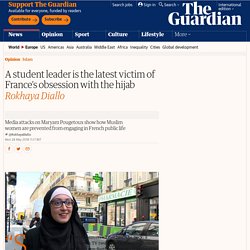

"Science in Exile" They are scientists in developing countries, committed to a life of research.

Working in a wide range of fields, they are pursuing discoveries and innovations that will improve life for the people in their countries and their regions. But then comes a conflict, a war. Universities are bombed. Colleagues are killed. And the thousands of scientists who remain – what should they do? These scientists are the focus of "Science in Exile", a new documentary directed by Italian filmmaker Nicole Leghissa and produced by The World Academy of Sciences (TWAS), based in Trieste, Italy. "Science in Exile" is story of science, but also a deeply human story. Interested in screening “Science in Exile”? "Researchers from developing countries are the fundamental focus of The World Academy of Sciences," said TWAS Executive Director Romain Murenzi.
"I spent a long time looking for the right protagonists for the film," Leghissa said. St. In addition to Kehoe and Al Zoubi, the film features: Mieux communiquer avec les personnes sourdes ou malentendantes. Tendances Première : LE DOSSIER - Transgenre et vie quotidienne - 27/04/2018. Genres Pluriels - Compte-rendu de la conférence participative : discriminations des jeunes (...) Il y a quelques mois, nous vous proposions une conférence participative sur les discriminations que vivent les jeunes trans* dans l’enseignement en Fédération Wallonie Bruxelles, de la maternelle à l’enseignement supérieur Discriminations dans l’enseignement : Conférence participative.

Nous n’avions pas encore publié le compte-rendu de cette activité. Une demande de la ministre de l’éducation (enseignement obligatoire), Marie-Martine Schyns) de pouvoir lire ce compte-rendu nous a fait réaliser que nous avions beaucoup communiqué avant la conférence... et plus du tout après. Or, même si rien ne vaut le « live », nous sommes persuadé·e·s que beaucoup trouveront grand intérêt à lire le compte-rendu de ladite conférence participative. Le voici, accessible à toustes en toute transparence. A student leader is the latest victim of France’s obsession with the hijab.
“She wears a particular veil that covers all her hair, the neck: a hijab”.

Last Tuesday on French TV two men – a pundit, Thomas Legrand, and celebrity host, Yann Barthès – described in detail a woman’s outfit before labelling it “the opposite of feminism”. Few people in France appeared surprised. For the past two weeks the hijab has once more been at the centre of a national debate that has verged on hysteria. It all started on 12 May when the political scientist Laurent Bouvet, known for his activism and sometimes referred to as a “gladiator of secularism”, published on his Facebook page an image taken from a televised interview with the elected president of the Sorbonne branch of the national student union (Unef), Maryam Pougetoux. The interview was about student protests against government reforms, but Bouvet’s attention was caught not by Pougetoux’s comments but by the hijab that surrounds her face. The reaction on social media was immediate.
So what did Pougetoux do wrong? Revenez sur chEEk ! #WTFCheekCheek MagazineCombinaisonKristýna PlíškováLe FigaroMargot CherridRoland GarrosSerena WilliamssexismetennisWeb the Fuck.

Diversity in Tech Blog. Diversity in Tech. White privilege. Why I’m no longer talking to white people about race. On 22 February 2014, I published a post on my blog.

I titled it “Why I’m No Longer Talking to White People about Race”. It read: “I’m no longer engaging with white people on the topic of race. Not all white people, just the vast majority who refuse to accept the existence of structural racism and its symptoms. I can no longer engage with the gulf of an emotional disconnect that white people display when a person of colour articulates their experience. You can see their eyes shut down and harden. “This emotional disconnect is the conclusion of living a life oblivious to the fact that their skin colour is the norm and all others deviate from it.
The Origins of “Privilege” The idea of “privilege”—that some people benefit from unearned, and largely unacknowledged, advantages, even when those advantages aren’t discriminatory —has a pretty long history. In the nineteen-thirties, W. E. B. Du Bois wrote about the “psychological wage” that enabled poor whites to feel superior to poor blacks; during the civil-rights era, activists talked about “white-skin privilege.” But the concept really came into its own in the late eighties, when Peggy McIntosh, a women’s-studies scholar at Wellesley, started writing about it.
McIntosh is now seventy-nine. How did you come to write about privilege? In those days, I worked at what was called the Wellesley College Center for Research on Women. I noticed that, three years in a row, men and women in the seminar who had been real colleagues and friends for the first several months had a kind of intellectual and emotional falling out.
The thing was, he was a very nice man. How Privileged Are You? Graspolitique.wordpress.com/ Regards ‘changés’ et ‘langues déliées’ : Des musulmanes évoquent l’Europe d’aujourd’hui.